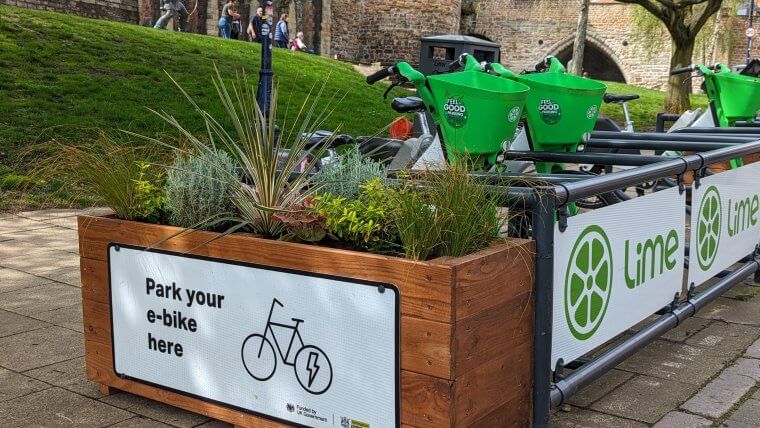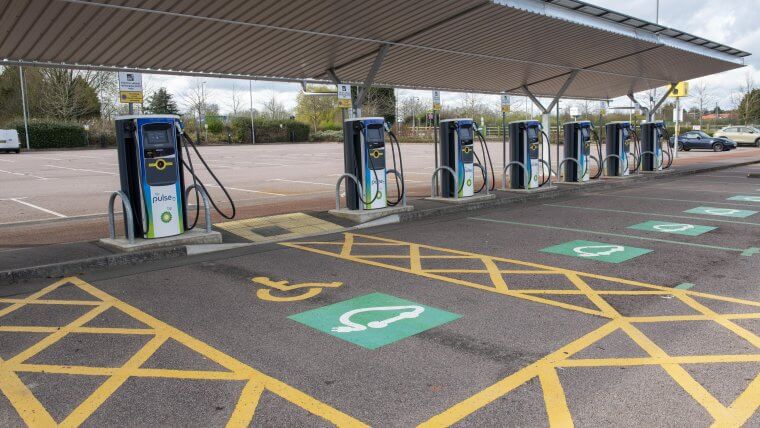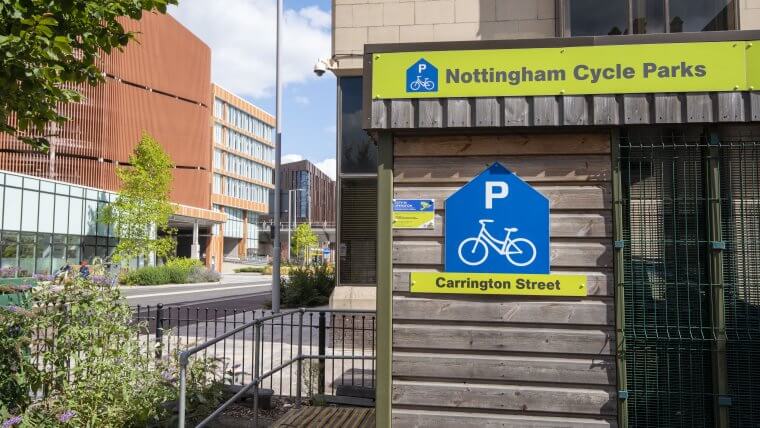15 February

There seems to be a lot to take in when you try to understand how electric vehicle charging actually works. Truth is, all you need to know is how many types of chargers are out there, how fast they can charge and which type of charger your vehicle is able to use.
Privately owned cars spend approximately 95% of the time parked, so that gives plenty of opportunity for you to plug in and charge up.
Let’s start with …
🔎⚡️ Where you can charge
🏡At home
For many, the easiest and often cheapest way to charge is at your own home. There are around 40 manufacturers available in the UK that provide charge points suitable for residential use which can be installed in a garage or on a driveway. These charge points are typically wall-mounted units available with a tethered Type 1 or Type 2 cable, which can be plugged straight into the car or with a Type 2 socket to be used with the vehicle’s charging cable. Most suppliers provide two power-rating options: 3 kW or 7 kW. More info here.
Don’t worry if you don’t know the difference between Type 1 and Type 2 sockets – we’ll get to that!
If you want to have one installed at your home, you can get a grant from the government of up to £500. Some manufacturers have deals with charge point suppliers too, so you could potentially have one installed for free or at a reduced price when you buy a vehicle.
But not everyone has the option to install a charge point at home, if that’s your case, consider charging…
🏢At your workplace
Put your car to work while you’re at work! A very convenient way to recharge your EV is when you reach your final destination before you make the return journey home. The most common workplace installation is a wall-mounted Type 2 charger with a power rating of 7kW. More info here.
Don’t have a charge point at work? Our Workplace Travel Service team can offer grants to install charge points at Nottingham based workplaces. If you are based outside Nottingham, you can access government grants for workplace charging.
If this still doesn’t give you a solution, you should definitely consider charging…
🔌 Out and about using the public network
These are normally found at car parks, shopping and leisure centres, hotels and along motorways. This is key to providing additional charging support especially when you need to make long emission free journeys or don’t have home charging. There are now more than 20 networks available in the UK and most offer a mix of slow, fast and rapid charging.
Our D2N2 network covers the whole Nottinghamshire and Derbyshire area and we are installing 230 charge points of which 120 are already available. Have a look at our progress map to find out where they are.
Now let’s talk about the really important stuff…
🕒 How long does it take to charge?
Think of batteries like a fuel tank – the bigger it is the longer it takes to fill and the more miles you can cover on a single tank. Well it’s the same for batteries, the bigger they are the more miles you can drive but the fill time depends on the amount of power available from the charge point.
A kilowatt (kW) is a measure of one thousand watts of electrical power. For context, a typical household appliance such as a dishwasher uses 1.2-1.5 kWs, an electric kettle about 1.2-3.0 kWs.
 🐢Slow chargers
🐢Slow chargers
For charging at home or work, slow chargers work perfectly! These chargers deliver power at 3kW and are the most common method of home charging electric vehicles. Charging times are typically between 6-12 hours so work well for home charging overnight. It can be carried out with a standard 3-pin socket but because of the higher current demands of EVs and the longer amount of time spent charging, it is safer and strongly recommended that those who need to charge regularly at home or workplace get a dedicated EV charging unit installed by an accredited installer.

🐇Fast chargers
These chargers are typically rated at either 7kW or 22 kW (single- or three-phase 32A). Charging times are typically 3-5 hours for a 7kW charger and 1-3hours for a 22kW charger. The majority of fast chargers are untethered, which are the ones you will mostly find in our D2N2 Network.
🐎Rapid chargers
They are the fastest way to charge an EV so are a great option for motorway service stations and to build into long distance travel. Units supply high power direct or alternating current – AC or DC – to recharge a car to 80% in 20-40 minutes. Rapid AC chargers provide power at up to 43kW (three-phase, 63A) and Rapid DC chargers provide up to 50kW.
We now have ten rapid charge points in our network distributed around different wards in Nottingham city. They all accept contactless payment and can be used with any of the three connectors: CCS, ChaDeMo and type 2.
Can all electric vehicles use fast and rapid🤔?
The answer is… all can use fast and the majority can use rapid.
The type of charging you can use depends on the type of inlet of your vehicle and its maximum charging capacity. For full EVs, car manufacturers tend to favour one of three charging inlet options:
- Type 2 and CCS, an option offered by most of the European car makers who include a Type 2 for slow/fast/rapid AC charging, and a Type 2 Combo (also known as ‘CCS’) for rapid DC charging;
- Type 1 and CHAdeMO, for slow/fast and rapid charging respectively;
- Tesla Type 2, which can be found on all current EU Tesla models.
Fast charge points use either Type 2, Type 1 or Commando connectors, which means – all EVs can use them. On the other hand, rapid charging is a challenge for some vehicles as not all of them are able to charge at 43kW AC or 50kW DC, meaning some vehicles are not able to rapid charge.
Check with your manufacturer the maximum charging capacity of your vehicle.
|
SLOW Power: 3kW AC Charge Time : 0-100% in 6-12 hours |
|||
|
Connection type |
|||
3-Pin Plug |
Type 1 |
Type 2  |
Commando |
|
FAST Power: 7-22KW AC Charge time: 0-100% in 3-5 hours |
|||
|
Connection type |
|||
|
Type 1 7kW |
Type 2
7-22 kW |
Commando 7-22kW |
|
|
SEMI RAPID Power: 22-43kW AC Charge time: 0-100% in 1-2 hours Connection: Type 2 |
|||
|
RAPID Power: 43-120kW Charge time: 0-80% in 20-40 mins |
|||
|
Connection type |
|||
| Type 2
43 kW AC |
CHAdeMO
50kW DC |
CCS Combo 2
50 kW DC |
Tesla Type 2 120kW DC |









